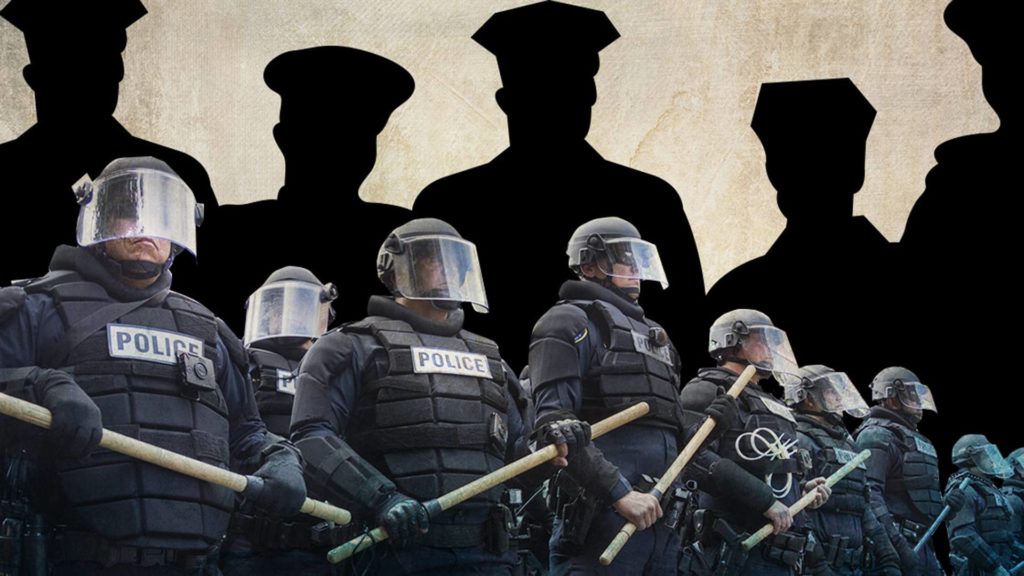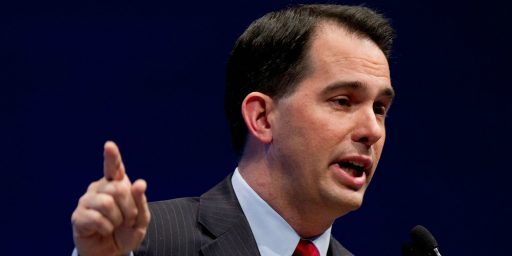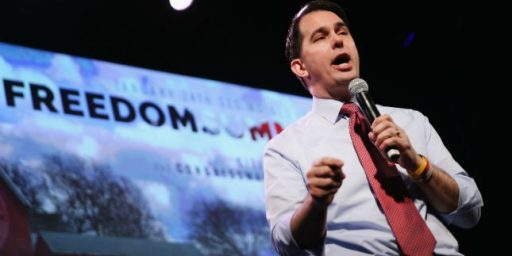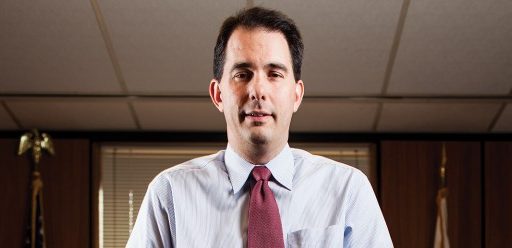Balko on Breonna Taylor Case
A nuanced take on a complicated set of facts distorted in the public debate.

Radley Balko’s Washington Post column on the Breonna Taylor verdict was published roughly the same time as my post Thursday afternoon but I just found it this morning through the vagaries of suggestion algorithms. His initial take mirrors mine but he brings some important nuance to the analysis of someone who has been on the police injustice beat for many years.
Wednesday’s announcement from Kentucky Attorney General Daniel Cameron about criminal charges in the Breonna Taylor case set off a frenzy of misinformation on social media. Based on what we do know — which I’ve culled from my own reporting, reporting from the New York Times and the Louisville Courier-Journal, as well as from conversations with the lawyers for Taylor’s family — the decision to charge Detective Brett Hankison with wanton endangerment was probably correct, as was the decision not to charge the other officers involved in the shooting. If ballistics had conclusively shown that one of the bullets from Hankison’s gun killed Taylor, he could be charged with reckless homicide, but according to Cameron, the bullets that struck Taylor could not be matched to Hankison’s gun. There’s the problem that the police who conducted the raid were relying on a warrant procured by another officer, which was then signed by a judge. There were many flaws and abrogations in that process, but it would be unfair and not legal to hold them accountable for any of that.
Again, that’s exactly my initial read on the situation. We agree here, too:
But “not illegal” should not mean “immune from criticism.” Part of the problem was Cameron himself, who was selective in what information he released to the point of misleading the public about key facts in the case. (This raises real questions about whether the grand jury was also misled. That’s why an attorney for Taylor’s boyfriend Kenneth Walker, who fired at the police during the raid, is demanding that Cameron release the evidence that was presented to the grand jury.)
Again, I was barely following the case prior to the verdict, lumping it in with so many other “reckless white police kill unarmed Black citizen” cases. But the impression I got from the NYT podcast summary was exactly this: that the authorities were unusually stingy with information, both allowing untrue impressions about what happened to become the perceived truth but also giving the perfectly reasonable impression that they were hiding something.
Furthermore, Taylor’s death was not, as Cameron suggested, simply a tragedy for which no one is to blame. The police work in this case was sloppy, and the warrant service was reckless. Taylor is dead because of a cascade of errors, bad judgment and dereliction of duty.
We agree on this but I was just operating on vague questions about the wisdom of servicing a search warrant in the middle of the night. Balko goes into much detail I didn’t have:
And it’s important that the record on this be clear. So here are some correctives for the misinformation I’ve seen online:
“This was not a no-knock warrant.”
It absolutely was. It says so right on the warrant. Moreover, the portion of the warrant authorizing a no-knock entry cited only cut-and-pasted information from the four other warrants that were part of the same investigation. This is a violation of a requirement set by the Supreme Court that no-knock warrants should be granted when police can present evidence that a particular suspect is a risk to shoot at police or destroy evidence if they knock and announce. They didn’t do that.
The police claim they were told after the fact to disregard the no-knock portion and instead knock and announce themselves, because, by that point, someone had determined that Taylor was a “soft target” — not a threat, and not a major player in the drug investigation. But there are problems with this account. If Taylor was a “soft target,” why not surround the house, get on a megaphone, and ask her to come out with her hands up? Why still take down her door with a battering ram? Why still serve the warrant in the middle of the night?
Again, I think this is absolutely a fair question.
“The police knocked and announced themselves, and a witness heard them.”
In what was probably the most frustrating part of Cameron’s press event, he cited a single witness who claimed to have heard the officers identify themselves as police. I spoke with Taylor’s lawyers in June, who at that time had interviewed 11 of her neighbors. Many lived in the same apartment building as Taylor. According to the lawyers, no neighbor heard an announcement. The New York Times interviewed 12 neighbors. They found one — just one — who heard an announcement. And he only heard one announcement. He also told the paper that with all the commotion, it’s entirely possible that Walker and Taylor didn’t hear that announcement. Cameron neglected to mention any of this.
Moreover, in a CNN interview Wednesday night, Walker’s attorney, Steven Romines, said the witness to whom Cameron was referring initially said he did not hear the police announce themselves. And he repeated that assertion in a second interview. It was only after his third interview that he finally said he heard an announcement. That’s critical context that Cameron neglected to mention.
Here, the account of the partisans in the account—a man who shot police officers and sparked the gunfight and the family who sued the police department for civil damages—conflicts with the New York Times reporter who has been covering the story for months. But the “third interview” aspect of this is nonetheless troubling.
The next two reinforce the previous one:
“Even Kenneth Walker has admitted that the police pounded on the door for 30 to 45 seconds. Therefore, by definition, this was not a ‘no-knock’ raid.”
With a few exceptions, when conducting a raid, government agents must knock and announce their presence and purpose, and give anyone inside the opportunity to let the officers in peacefully — thus avoiding violence to their person and destruction of their property. If the police simply pounded on the door for 45 seconds and never appropriately announced themselves, that’s even worse than not knocking at all. It likely made Walker even more fearful that the people outside the door were there to do harm to him and Taylor.
“If the police say they announced themselves, and one neighbor heard it, then they probably did. So what if the other neighbors didn’t hear it? They were probably asleep.”
The entire purpose of the knock-and-announce requirement is to provide ample notice to the people inside the home the police are trying to enter. If the police didn’t yell loudly and clearly who they were — loud enough for the people inside to hear — the knock-and-announce portion is rendered meaningless, and the entire action becomes no different than a no-knock raid. As the Times reported, the officers on this raid were trained by a man who, oddly enough, is now president of the Louisville city council. “During his 19-year career as a police officer, he had instructed recruits at the local training academy about ‘dynamic entry.’ Especially when executing a warrant at night,” he told the paper, “he told them to yell ‘police’ at the top of their lungs, specifically so that occupants would not mistake them for an intruder.” That clearly did not happen here.
I find Balko’s reasoning here compelling if not dispositive. One would think that banging on the door for 45 second while “yelling ‘police’ at the top of their lungs” would have awakened more than one neighbor. There seems to be no dispute as to the banging. But it seems more likely than not that, if the officers announced themselves, they did so as they were ramming in the door and forcing their way into the apartment.
“Breonna Taylor was not asleep in her bed when she was shot.”
This is true. And it’s also true that many media reports and activists stated she was. I’m not sure what difference this makes. She and Walker were in their bed when police began pounding on the door. They were awakened at 12:40 a.m. There’s every reason to believe Walker when he says they were frightened.
Aside from the fact that “she was murdered while asleep in her bed” was the rallying cry around her case, I agree.
“The man who shot at the police, Breonna Taylor’s boyfriend, was also a drug dealer.”
Taylor’s ex-boyfriend was dealing drugs. That man, Jamarcus Glover, was the main focus of the police investigation. Walker, Taylor’s boyfriend at the time of her death, was not named in any investigation.
A few people have pointed to a leaked police memo that includes quotes from Glover taken from recorded phone conversations at the jail as proof that the two knew one another. The Louisville police themselves have said the leaked memo was an early, unverified draft written mid-investigation, that these quotes were taken out of context, and that the way they’re being used is deeply misleading. (For example, Glover said Walker was also in jail. He was — because police had arrested him after the raid.)
That two “boyfriends” were involved was confusing to me, at least listening to the podcast. I’m not surprised that people didn’t realize Walker and Glover were different people.
There’s a whole lot more to the column and I’m not going to copy it all here. Really, though, it all comes down to whether Walker understood that the men breaking down the door in the middle of the night were police. And Balko makes the reasonable case—as did some commenters on the OTB thread—that he did not.
Walker admits he fired first. But he says he fired only after he and Taylor repeatedly asked who was pounding at the door, got no answer, and after a battering ram busted open the door. If Walker reasonably believed that the men breaking into the apartment were not police, he had every right to defend himself and Taylor. At that point, the police also had the right to return fire. The latter would be true even if the courts later determined that the police had failed to properly identify themselves (which would make this a no-knock raid) and the no-knock portion of the warrant was later determined to be illegal (which it was). That’s how the law works.
But there is every reason to believe Walker did not know the men outside the door were police. Walker is not a criminal. There were no drugs in the house. You don’t need a license to have a gun in a private home in Kentucky, but Walker had gone the extra step to obtain a concealed carry license. (Kentucky changed its law in 2019, and no longer requires a license for concealed carry either.) That isn’t something hardened criminals hellbent on killing cops tend to do. Neither is calling 911, which Walker also did after the shooting. Moreover, Walker knew about Taylor’s past involvement with the drug dealer Glover — and that Glover wasn’t happy about Taylor seeing Walker. He has said he feared that it was Glover or his associates outside the door. That too seems entirely reasonable.
None of this changes the points made in the first paragraph: given the events that transpired, the two officers who returned fire on Walker and unintentionally killed Taylor were not guilty of crimes. And, alas, the officer who was guilty of crimes didn’t kill Taylor (although it’s a minor miracle that his recklessness didn’t kill someone).
The more important point, though, is that, as in so many of these cases, whether police engaged in criminal conduct is really beside the point. While it’s understandable that families and communities want justice for those killed by police violence, the larger issue is a police culture focused on dominating the situation and prioritizing their own safety above all else.
Even if the worst case misperception—that Taylor’s drug-dealer boyfriend shot at people he knew were police coming to arrest him—were true, there’s just no reason to issue a no-knock warrant and conduct a middle-of-the-night search in this case. The risk of innocent bystanders—if nothing else, the neighbors—being harmed outweighs the risk of destroyed evidence.





Who ran the ballistics? An independent investigator in no way tied to Kentucky or federal government?
Police obviously did not announce themselves. The AG knew that, and undoubtedly knew that cops had leaned hard on the one witness to claim otherwise. He chose to present that witness’ testimony nonetheless. Why? He’s a Black Republican, a man who has long since sold his soul and having made his corrupt deal with the devil he had no choice but to play it out. So he tanked the grand jury.
Louisville police have body cams. These were apparently turned off. That in itself discredits the officers’ testimony. Cops who refuse body cams are corrupt or incompetent or both.
Two quick thoughts: First that it’s a damn shame that posse was not sent to arrest Roger Stone….
And more seriously — the slugs that killed Ms Taylor could not be matched to a specific pistol? Hmmmm. I suppose they would have passed through a door and possibly some wallboard. And of course the human body deforms bullets. But are the police not equipped with ‘full metal jacket’ ammunition? I suppose not but I’d thought they were — partly for the reason that they would retain the grooves from the rifling. The OTHER reason is that they would be more likely to wound than to kill. Which seems important.
But there’s a lot more to this business than my little cerebral lightbulb.
And I seem to have won the ‘edit’ lottery! Do I get a prize?
@JohnMcC: I find myself wondering the same things about the “mystery” bullets. If there had even been a scintilla of possibility that they were a match to her boyfriend’s gun, the prosecutor would have run that as the headline for his version of the
liestory he’s telling. Yet, they remain shrouded in mystery. Hmmm…Now, I’m going to leave this conversation, as I didn’t join it earlier. Brionna Taylor will become just another face of the week in police violence against people of color. Someday we’ll figure out how to fix this problem. But apparently, it won’t be today.
@Michael Reynolds:
I gathered from multiple sources that detectives and other plainclothes officers didn’t wear them—although the policy has apparently been changed pursuant to this case.
You forgot to add the fun of playing soldier without being required to follow the pesky “ethics” of actual soldiers to the list of things that killing innocent people outweighs. In fact, if you stated that the concept of “risk of destroyed evidence” isn’t something that cops actually believe – that it’s just some words spoken after each other to Justify Soldier Cosplay – you wouldn’t be lying. Or, to paraphrase Tucker Carlson’s lawyers, you’d just be Engaging In Non-Literal Commentary.
It would be irresponsible not to speculate!
Meanwhile, the police in Louisville are charging protestors with felonies, for being in the vicinity of a building that was set on fire:
https://www.washingtonpost.com/nation/2020/09/25/breonna-taylor-protest-scott-arrest/
Including a state legislator. The legislator who proposed a bill that would end no-knock warrants statewide. A legislator who was outspoken about the lack of body camera footage.
If they have evidence that Rep. Scott set a fire (as state representatives so frequently do) or that anyone else did, then they should be charged and prosecuted accordingly. But being near a fire should not be a felony.
Has anyone ever posed a legitimate explanation for turning off or not wearing body cams? Not to be faux naif, but if a cop intends to do everything above board and by the book, I’d think that he or she would want proof of that in the form of video and audio.
@James Joyner:
Your ink doesn’t work–at least for me.
I read Balko’s column yesterday. It didn’t strike me as “nuanced”, just thorough.
@gVOR08: At this point, any thorough examination of these cases that’s not hysterically one-sided comes across as nuanced.
@CSK:
“Has anyone ever posed a legitimate explanation for turning off or not wearing body cams? Not to be faux naif, but if a cop intends to do everything above board and by the book, I’d think that he or she would want proof of that in the form of video and audio.”
Not yet, maybe it will be in the same press briefing that explains why a plea bargain was offered to implicate the deceased Miss Taylor.
Come on, James. If you’re going to pretend convincingly to be impartial, you have to remember to leave the scare quotes in the drawer.
I’m still waiting for your explanation of how general law-abiding gun-owning citizens are supposed to react when their home is invaded by robbers and rapists shouting “Police!”.
On topic, Vice had gotten body can forage of the immediate aftermath and investigation into the shooting that, to say the least, raises some additional questions about the integrity of the investigation.
https://www.vice.com/amp/en_us/article/v7gwyy/new-body-cam-footage-raises-questions-about-breonna-taylor-death-investigation?__twitter_impression=true
@mattbernius:
I’m shocked — shocked! — to learn that police officers follow neither the law nor their own official procedures when they’ve fvcked up.
*”Body can forage” is an all-time great autocorrect…
@DrDaveT:
Of course not. Police culture is cancel culture.. they whimsically cancel every law [and destroy every life] they don’t like. Truth is that conservatives have always loved cancel culture — they just can’t comprehend being the ones getting canceled. And they call it “The Way It’s Always Been” rather than “Cancel Culture.”
@gVOR08:
Balko is nothing if not thorough.
He has been on the militarization of police for a decade and a half.
@DrDaveT:
Lol, yes, it is!